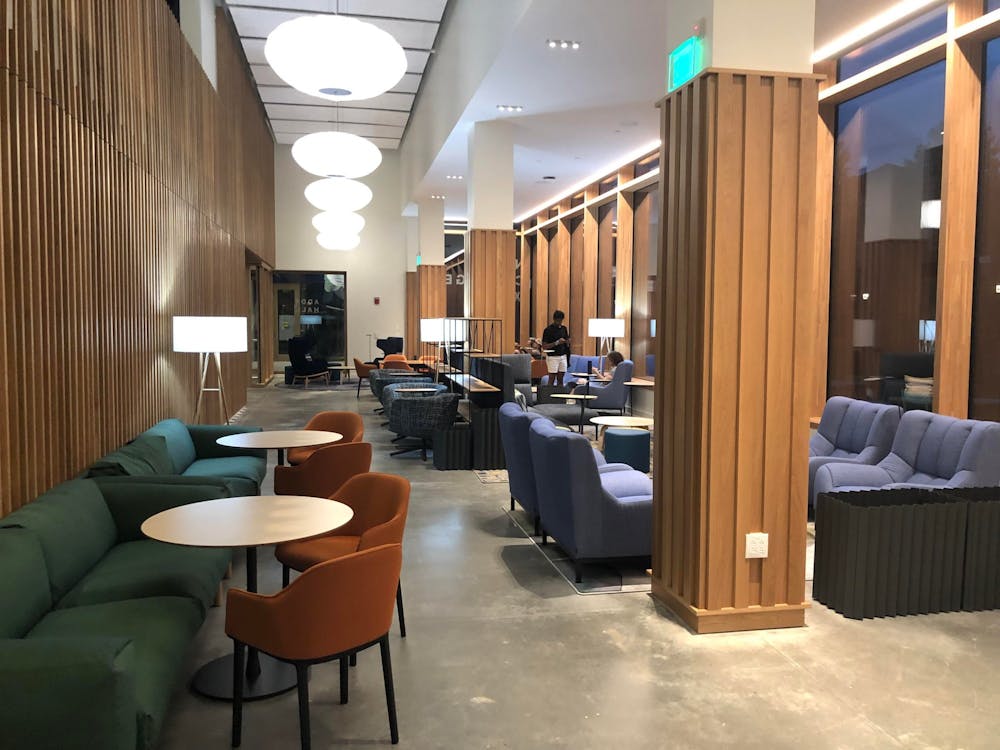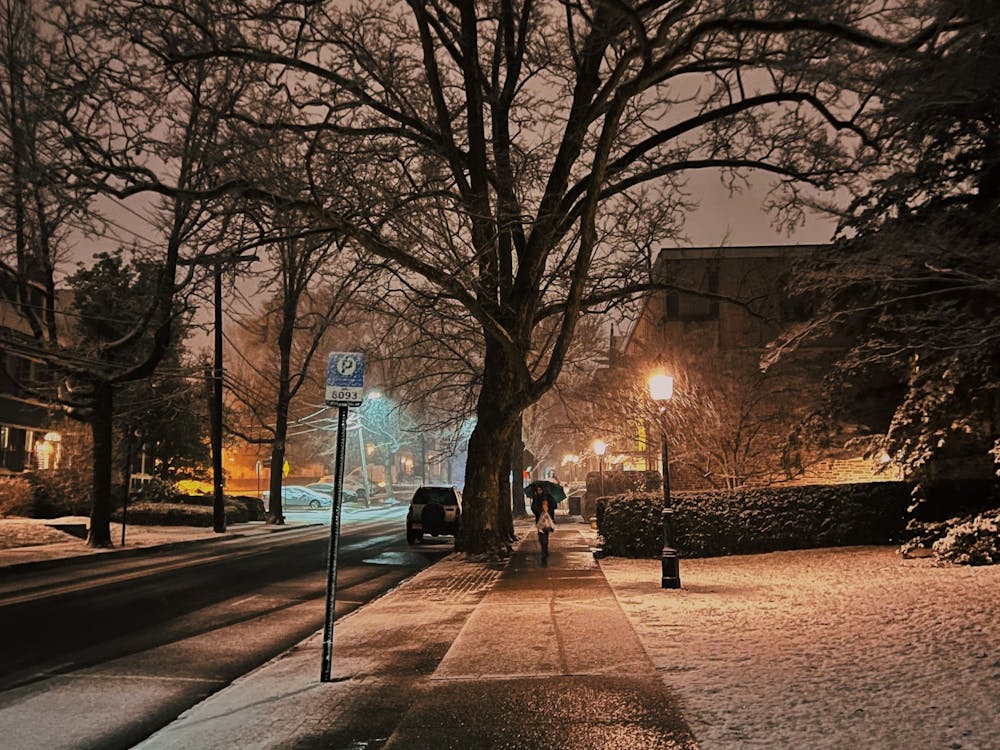When the first-year class descends upon Princeton’s campus each fall, they are ready to begin the next chapter of their lives. Their first steps include attending events with hundreds of new faces, completing dozens of orientation sessions, and embarking upon orientation trips. These experiences help students acclimate to the Princeton community, but after orientation programming, first-years are faced with an entirely new campus landscape: in their absence, nearly 4,000 sophomore, junior, and seniors have moved back onto campus. Many students find this new landscape overwhelming; yet for some, the transition seems less drastic, thanks to prior connections to upperclassmen, which often resulted from privileged upbringings. To provide a more even playing field for all students, the University should create opportunities for all first-year students to build comparable connections with upperclassmen.
Some first-years are fortunate enough to feel comfortable in this new environment full of intimidating, intelligent, well-adjusted students.Their teammates, family friends — who are often known through alumni connections —, or former classmates from elite private schools that send a disproportionate amount of graduates to Princeton are here to provide them a safe-haven in this new place. Students who are not fortunate enough to have access to these connections, or to gain admission to a highly selective club in the first few weeks of the semester, are left to figure out Princeton for themselves.
The University is significantly invested in helping freshman bond on their orientation trips. Outdoor Action leaders must complete five “full-day” training workshops, with eleven additional hours of training, along with two weeks of camping and preparation before the first-year class moves onto campus. This indicates their commitment to creating an intentionally supportive environment. Similarly, the university coordinates with community organizations and lodging retreats to perfect the Community Action experience. Both of these organizations and the dozens of other orientation activities succeed at making a class feel more like a community. The administration seems to be relatively successful in facilitating bonds between students of the same year: Why can’t they do this between freshman and upperclassmen?
There are numerous reasons why having connections with older students on campus is beneficial for first-years. Upperclassmen can provide advice on a variety of issues including classes, co-curriculars, and social life. Students who occupy roles specifically oriented to helping freshmen, such as Residential College Advisors and Peer Academic Advisors, are useful and necessary, but do not replace the role of a friend: someone you can connect with on a casual and personal level. Older students hold wisdom and knowledge which they impart onto younger friends. They know how to behave around which professors, which clubs to join and which are too time consuming, how to get into certain exclusive clubs and co-curricular activities. As a first-year, I can attest to our desperate need for advice on these fronts.
Additionally, upperclassmen can serve as a tie into Princeton nightlife, holding the keys to eating clubs in the form of passes. Nearly 50% of upperclassmen are members of a bicker club — which tend to require list spots or passes to attend parties — and an additional 26% are in non-bicker clubs. As the only formalized party space on-campus, these organizations are campus life powerhouses. Yet what happens in these clubs is much more than partying — it’s networking. While the University may be apprehensive to promote first-year access to drinking circles, it is undeniable that they do have an interest in helping all first-years access the opportunities pipeline that they can be so proud of post-graduation.
Seeing as the University puts so much time and effort into integrating first-years into social life and “promoting belonging,” it seems strange that there is no effort to help first-years — who are truly new to our campus community — engage in such a central part of social life. Our University is a powerhouse for networking and forging relationships that become beneficial later in life. Princeton alumni notoriously look out for each other. Even vaguely knowing alumni in a certain field or having a name you can drop when needed can be hugely beneficial for networking after graduation. Students who come to school with a more privileged background have an advantage in this regard. If Princeton truly wants to promote equity, they must give all underclassmen the opportunity to benefit from these opportunities.
Obviously the University cannot dictate who students befriend, interact with, or help out. However, based on the general successes of orientation, the University seems to be both fairly good at and committed to, such as putting first-year students in positions where they have an opportunity to connect with people who are like them and creating lasting friendships. This prowess should be applied to creating inter-grade friendships as well. The new policy regarding allowing students of all class years to live in residential colleges is an excellent opportunity for intergenerational friendships to form. Residential colleges frequently host events for students that involve giving away food or gear as incentives for participation. Community Living Advisors are responsible for creating these spaces for upperclassmen, while Residential College Advisors do so for first-years. Making these events open to all grades, instead of separated by freshman and upperclassmen, would provide an opportunity for younger students to familiarize themselves with the upperclassmen who they live with/around.
Yet casual mingling is not enough to form a community — something Princeton appears to know, based on its orientation practices. Holding structured introductory events within Residential Colleges, based around common interests or shared struggles, for inhabitants of all grades would facilitate better community within living spaces. This would create opportunities for new and current students to co-exist and get to know each other outside of the intensely competitive and intimidating club atmosphere. Giving students who did not enter Princeton as members of the “elite” the opportunity to interact with older students is a part of creating equality on our campus.

Being a new person in a new place comes with lots of social adjustment, and as newly-minted young adults, it is important for first-years to have to bear some responsibility in integrating themselves into the community and finding their place. However, in the name of equity, the university should make efforts to level the playing field, when some first-years clearly walk onto campus with a leg up.
Ava Johnson is a first-year columnist from Washington, D.C. She can be reached by email at aj9432@princeton.edu.









